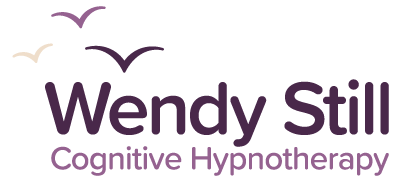What would you do if the fear was gone?
Living without anxiety is like the cage door being opened and stretching your wings for the first time. You don’t have to be on the inside looking out anymore, you can fly free.
How can Cognitive Hypnotherapy help
I’ll teach you a number of simple yet highly effective tools you can use to ‘switch off’ your response. This will immediately help you to feel more in control.
We’ll explore what triggers the anxiety, how you physically react and what negative thoughts you have in responses to those triggers. Together we identify your ‘why’; your own unique root cause for this reaction to these situations.
Then by using proven hypnotherapy and NLP techniques, we can rapidly effect change.
The key to making any change permanent is at the unconscious level of your mind. This is why hypnotherapy is such a powerful tool.
A Little more about Anxiety
Most people are aware of a degree of unease prior to or during troubling, negative or even exciting events. That’s a perfectly natural and realistic response.
A little bit of anxiety can be helpful before an exam, or an interview, for example. It can help you focus, be more alert and improve your performance. It also means you really care about doing the best you can.
This is great if it’s at a level that you can cope with and doesn’t overwhelm you.
But it may be such a powerful fear response that you could find yourself frozen with fear or wishing you could run or fight your way out of the situation. You may experience a panic attack. This could cause you to avoid doing things you’d enjoy or hold you back in life, unable to progress. Even just thinking about it could make you feel anxious – and it becomes ‘the fear of the fear’.
Or you may be aware something doesn’t quite feel right – you become hypersensitive to small, everyday occurrences, seriously affecting your quality of life. Again, this is where hypnotherapy is excellent as it can help you discover more about what is happening and why.
Anxiety is the result of fear. Fear is created in response to a threat; whether that threat is felt because of a real danger, or an imaginary one.
An example of an imaginary threat might be a ‘what if…’, which is the fear of something happening or not. Similarly, rejection, exclusion, judgement, and embarrassment all count as imaginary threats. They are based around our personal perception, our view of the world around us from our own perspective.
Cognitive Hypnotherapy can help you discover the root cause of unhelpful perceptions and negative limiting beliefs; and release you from their grip. Together we identify your resources and strengths and you’ll learn tools to access them quickly when needed.
If you could you can cope with anything and that no matter what, you’d be OK; would you still feel anxious?
Although we may explore the root cause, you can feel safe and assured that due to the way the techniques are carefully designed, you won’t have to dwell on past traumas or experiences.
What are the symptoms?
Anxiety can have both psychological and physical symptoms. It’s our automatic survival mechanism, the fight, flight or freeze response. Your body releases stress hormones, such as adrenaline and cortisol. Because we are all unique, we can experience stress and anxiety differently.
Common physical & psychological symptoms include:
- Pounding heartbeat
- Palpitations (irregular heartbeat)
- Rapid breathing
- “butterflies” in your tummy
- Chest pains
- Sweating
- Stomach ache
- Feeling sick
- Shaking
- Muscle tension
- Headache
- Dizziness
- Change in appetite
- Trouble sleeping
- Diarrhoea
- Fatigue
- Needing the toilet more frequently
- Panic attacks
- Panic or nervousness
- Irrational anger
- Restlessness
- Feelings of impending doom
- Difficulty concentrating
- Being extra Alert
- Feeling edgy or not being able to relax
- Needing frequent reassurance from other people
- Feeling tearful

